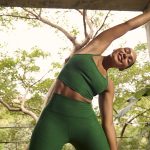The NPD Group believes the postponement of most of the major sports leagues’ seasons due to the coronavirus outbreak will have a minimal impact on athletic footwear sales but may cause some near-term pain for the licensed sports category.
In a report, Matt Powell, SVP, industry advisor, sports, NPD, noted that a championship or a breakout star performance rarely changes the trajectory of athletic footwear sales.
“Leagues rarely give a lift to the business in good times, so we do not expect a decline here,” Powell said in an interview with SGB Executive.
Asked about the impact on basketball shoes with the postponement of the NBA’s season and models tied to star players such as LeBron James and Giannis Antetokounmpo, Powell told SGB that there has never been a big lift in basketball shoe sales tied to feats accomplished during the NBA championships. He further added, “Basketball shoes are out of fashion as streetwear.”
Outside the major sports leagues, Powell likewise doesn’t see the potential suspension of the Tokyo Olympics as a big blow to sports retail since the games typically don’t provide much of a boost. Said Powell, “I expect this will continue to hold true for the Summer Games.”
Overall, Powell also noted that performance footwear being out of fashion today. Powell said, “Consumers are not buying performance shoes as fashion, regardless of who is playing or winning in a sport. The performance shoe business is smaller than the sport-lifestyle business and is shrinking.”
…
From a marketing standpoint, the suspension or potential postponement of major sports leagues and events will deprive the major sports brands with a marketing opportunity, including capitalizing on their sponsored athletes. Powell, however, also sees a minor impact. He tells SGB, ‘The sports marketing from events is cumulative, not visceral.”
He added that having a sponsored star athlete or league championships always brings additional exposure to a brand, but the exposure doesn’t directly drive consumer behavior. Powell said, “Instead, its value is more of a long-term brand-building tool. So the lack of brand exposure will not hurt much in the short-term.”
On the other hand, revenues the sports licensing category often rise and fall on the success of teams and will likely absorb a hit in the near term, he said. Powell referenced Modell’s Sporting Goods’ recent admission that the poor performance of local teams, particularly the Knicks, Giants and Jets, was one of the factors behind its bankruptcy filing.
Powell said about the success of sports teams, “Both retailers and brands benefit here, especially after championships.”
…
Nike now dominates sports licensing sponsorships. Nike replaced Adidas as the NBA uniform provider in 2017 after placing Adidas as the NFL’s on-field apparel provider in 2012. In both cases, Fanatics took over the fan merchandising rights. In 2020, Nike became the new uniform supplier for MLB uniforms, replacing Majestic Athletic. Fanatics again was granted broad consumer product licensing rights in the MLB deal.
Adidas has been the uniform sponsor of the NHL since 2015, when it replaced sister-brand, Reebok. Adidas has been the MLS sponsor since 1996.
Powell said he expects caps, jerseys and championship gear will be affected by the postponements. However, assuming the seasons aren’t canceled, much of those sales could be made up at a later date when playoff runs take place. Powell told SGB, “If the events are ultimately played, whatever lift would have been gained earlier is not gained later.”
Overall, Powell noted that sports licensed products continue to significantly benefit from major events such as when marquee players are traded, such as Tom Brady’s trade to the Tampa Bay Buccaneers, or a team that has not won in a long time, wins.
Powell said he sees no impact on running shoe sales from marathons being canceled.
The major postponements and cancellations include:
- The NBA’s 2019/20 season was placed on indefinite hiatus on March 11 with a plan to last at least 30 days. A return by mid-to-late June is being seen as a best-case scenario with some fearing the rest of the season will be canceled;
- The NCAA on March 12 canceled the Division I men’s and women’s 2020 basketball tournaments, as well as all remaining winter and spring NCAA championships;
- The NHL on March 12 suspended its season indefinitely;
- MLB said on March 12 that Opening Day will be delayed at least two weeks and spring training games are canceled. The World Baseball Classic, which was due to start in April, has also been postponed indefinitely;
- Little League International in a statement on March 16 said it was recommending delaying the implementation of the Little League season to begin no earlier April 6;
- MLS on March 12 announced a 30-day suspension. U.S. Soccer on March 12 announced that the men’s and women’s national team games have been canceled through at least the end of April. Euro 2020 and Copa América, both scheduled for this summer, have been postponed for a year;
- The PGA Tour announced on March 12 that the 2020 Players Championship has been canceled amid concern surrounding the coronavirus pandemic. All PGA Tour events until the Masters have been canceled. The LPGA postponed its next three events, including its first major of the season, the ANA Inspiration;
- The Association of Tennis Professionals and the Women’s Tennis Association issued a joint statement on March 18 suspending all tournaments until June 7;
- The Boston Marathon and The London Marathon were both rescheduled for September 14 and October 4, respectively; and
- The International Olympic Committee (IOC) and Tokyo Organizing Committee continue to maintain in public and private that the Olympic Games in Tokyo will take place in July. Some athletes are facing hurdles qualifying due to the cancellation of qualifying events. The IOC said as of March 18, 57 percent of the places available for athletes in the 2020 Games have already been met through qualification.
Top Photo courtesy Fleet Feet, Lincoln Square, Chicago, IL
















